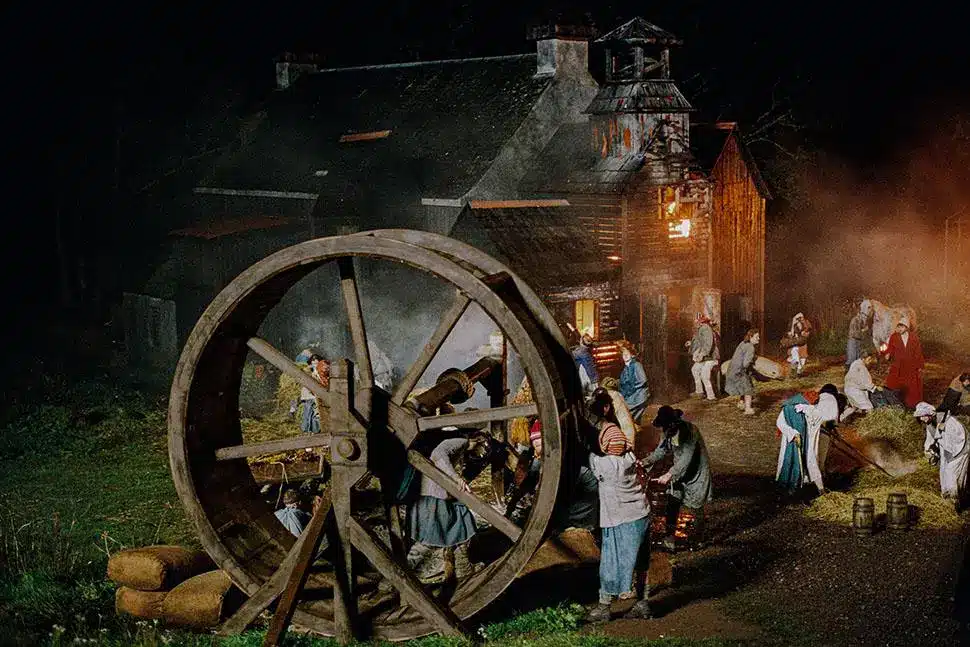
Athina Tsangari’s muddy and textured story explores how capitalism and social dynamics can undo a pastoral idyll of a remote Medieval village.
Greek filmmaker Athina Tsangari—who has a cult reputation in arthouse cinema circles, especially after 2019’s Chevalier—showcased her film Harvest at Venice Film Festival this year, and the result is a deeply compelling story that also confirms her directorial vision.
Adapted from Jim Crace’s 2013 book of the same name (shortlisted for the Booker prize), the film is set in a remote English village during the Middle Ages, and explores how capitalism and social dynamics undo the pastoral idyll they reside in. This is another ensemble story, obviously, brimming with well-realised characters struggling to deal with their own social burdens.
But more than anything narrative, this is a real treat for the senses. The world building in Harvest, which is muddy and richly textured, feels as though it has a pulse of its own. With a cast who are committed to acting as authentically to the time period as possible (albeit for a questionable mish-mash of accents), it’s easy to feel immersed in Tsangari’s brutal and earthy tale.
There are some flaws. At times, the pacing can come off as uneven. Some parts of the plot could have had more time to breathe to help me resonate with the characters (the biggest challenges of ensemble stories like this one). There’s thematic depth, but it also felt heavy-handed at times.
Despite that, this is Tsangari announcing herself to a wider audience with bolstering confidence, and it’s a film that carries some personal heft for the filmmaker, too (not just as a broad political commentary). Harvest ends with a dedication to her grandparents in Greece, “whose farmland is now a highway” and she succeeds at communicating her skepticism on how we develop and destroy pastoral communities. This is a film that will have you questioning the world around you long after the credits have rolled.





